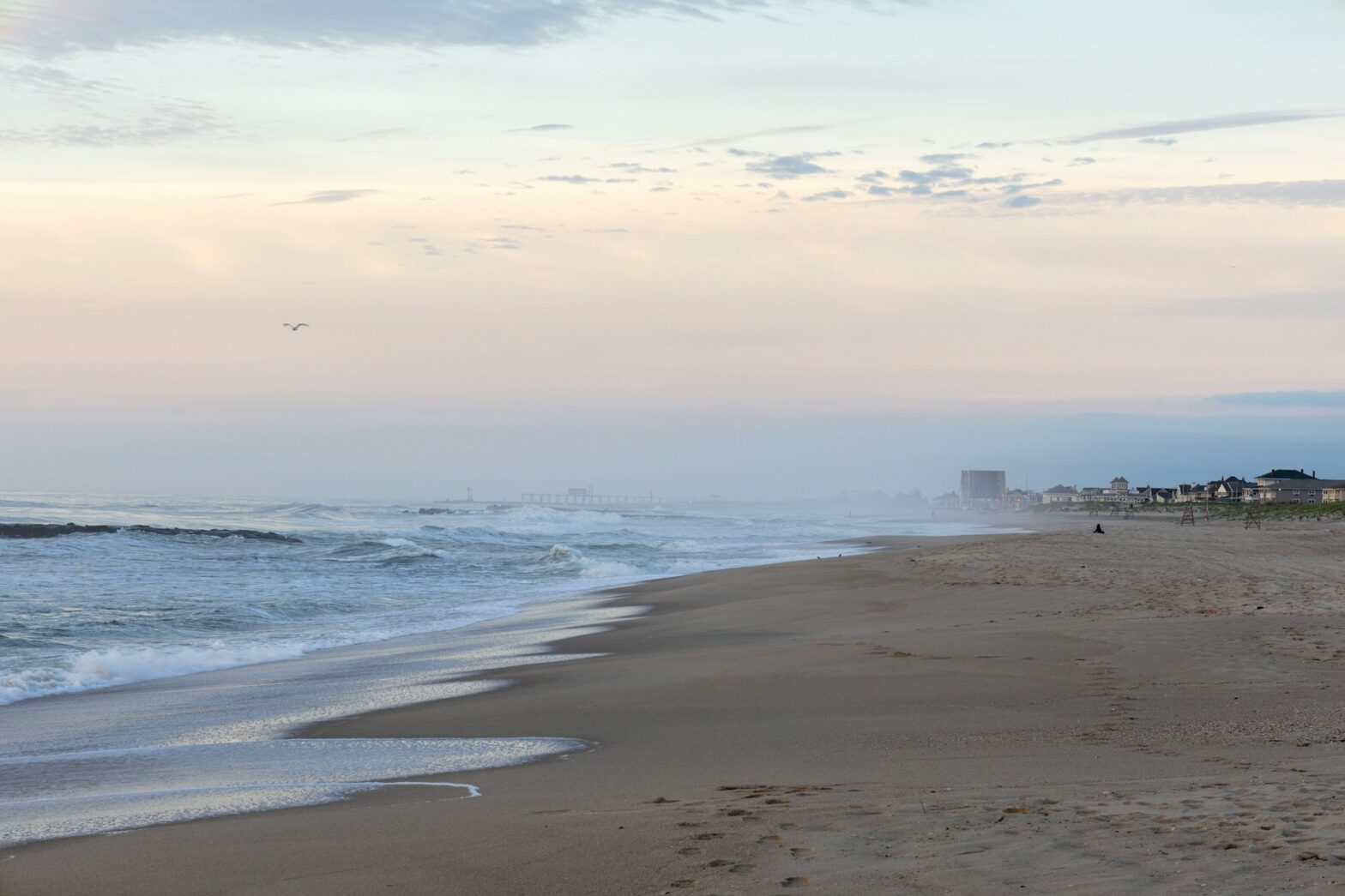Last June, 27-year-old Serenity Smith relocated from Queens, NY to Den Haag, Netherlands. One might wonder why someone would move overseas in the midst of a worldwide pandemic while borders were closed and travel was at its most complicated. It was simple, the ability to create generational wealth.
But for Serenity, a Learning Specialist, she considered the opportunity to move abroad as an international educator the golden ticket to the life she desired— a life where she could explore different cultures and countries, grow professionally, and create financial freedom for herself.
Serenity initially worked in politics. She graduated with a Bachelor’s degree in Political Science and International Relations, and worked on Capitol Hill for both the House of Representatives in the Congressional Black Caucus Foundation and the Senate.
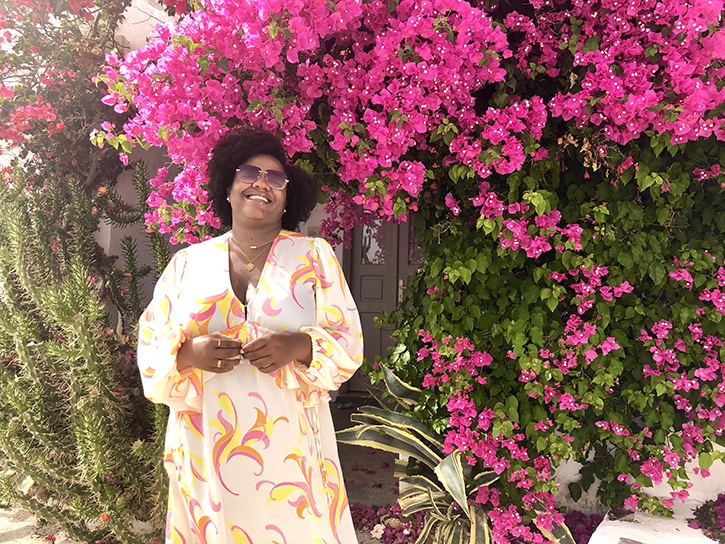
“During my time as an undergrad, I traveled out of America for the first time to study abroad in Manchester, England. It was my senior year of college and after returning from studying abroad, I knew that I wanted to do nothing else but travel. I desired a gap year that I couldn’t afford. I then promised myself that at some point I would live abroad to experience the world and further travel.”
After completing her undergraduate studies, Serenity was recommended to join the New York City Teaching Fellows program, an alternative teacher certification program that provides teacher training, coursework, and resources.
“I never saw teaching in my future. It was always politics, and in many ways, the two align. While in the program, I was determined to find a way to travel the world while growing professionally and wanted to find my desired career. I then discovered the world of international teaching, full of educators living abroad, traveling the world, and creating new generational cycles for their families.”
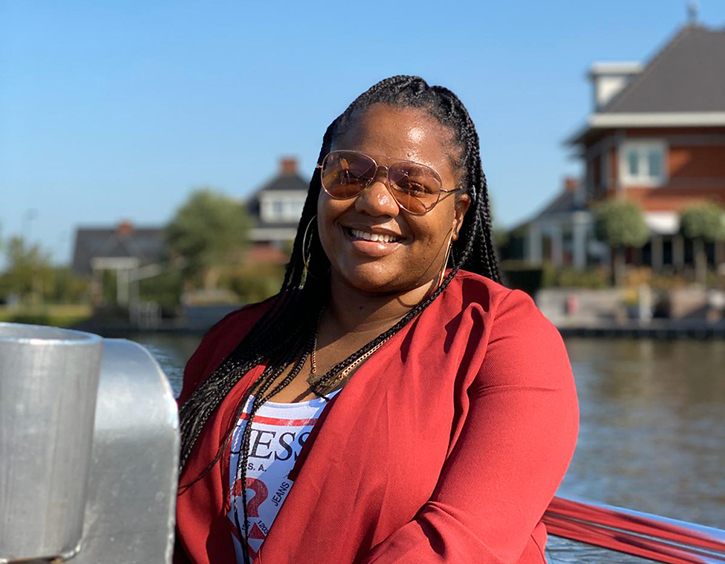
In 2019, Serenity graduated with her M.S. Ed in Special Education, ready to conquer her goal of moving abroad through teaching. Having made connections with other Black educators living in Middle Eastern countries such as and Kuwait, she had her sights set on Dubai.
“There is a huge diaspora population of educators in Dubai, Abu Dhabi, etc. I linked with educators virtually through FB groups and by boldly sliding into their DMs, curious about the life they lived. Dubai became my dream country for years. Educators in the Middle East seemed to have a life of social and financial luxury. They are also building generational wealth.”
Once the pandemic hit in March 2020, Serenity found herself with the opportunity to stay home and work virtually. This allowed her more time to plan, network, and apply to international schools. However, the only available opportunities she was finding at the time were in East Asian countries like China and Hong Kong. It was starting to seem as if her Dubai dream wasn’t going to happen.
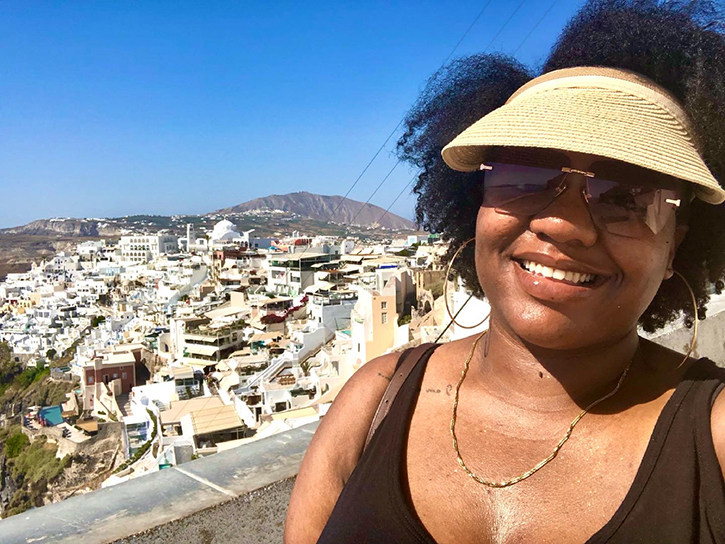
“What kept me motivated was the support of experienced international BIPOC educators who were excited to help another BIPOC educator get into the world of international teaching. I was determined to finally make my move abroad after planning for nearly three years. It wasn’t until June that I realized that if I wanted to go abroad and begin living the life I desired, I would have to be more open to other countries.”
At the last minute, there was a posting for a position in the Netherlands. Having lived in Europe before while studying in Manchester, Serenity wasn’t exactly thrilled about the idea. Yet, she remained open-minded, determined to get her foot in the door. She applied for the job and three weeks later, she was on a plane to her new home.
“I had just three weeks to pack up my house, ship all my belongings to the Netherlands, fill out immigration paperwork, set up a European bank account, and catch a flight there. It was all paid for by my job, one of the many perks that international educators receive.”
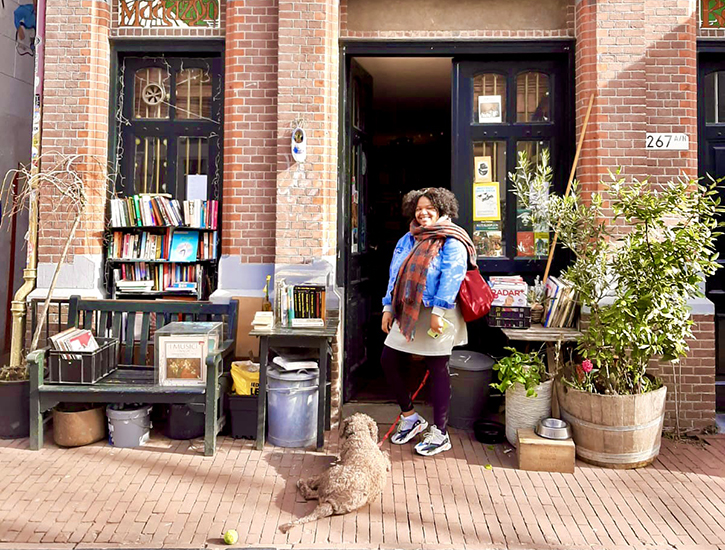
Serenity is enjoying an amazing quality of life in the Netherlands. She loves the work/personal life balance free of extreme workloads and pressure from employers to work overtime. It is a very family-oriented society in which leisure and pleasure are not restricted to just weekends and holidays.
“Most shops close by 6 pm on weekdays and weekends with the exception of grocery stores, coffee shops, weed dispensaries, and restaurants/bars. There is late-night shopping typically Thursday to Saturday, where stores stay open until 9 pm. Most of society is home for dinner by 6 pm. Most Dutch enjoy their dinners canalside sipping wine and chatting with friends.”
Serenity has adapted to the Dutch cycling culture and now gets her exercise daily biking to and from work. There are other things that make it a very healthy society as well, including having some of the freshest affordable produce and meat available from farmer’s markets and supermarkets, which are typically found less than a mile from most residences. However, when it comes to healthcare, seeing a doctor is not a quick or easy process.
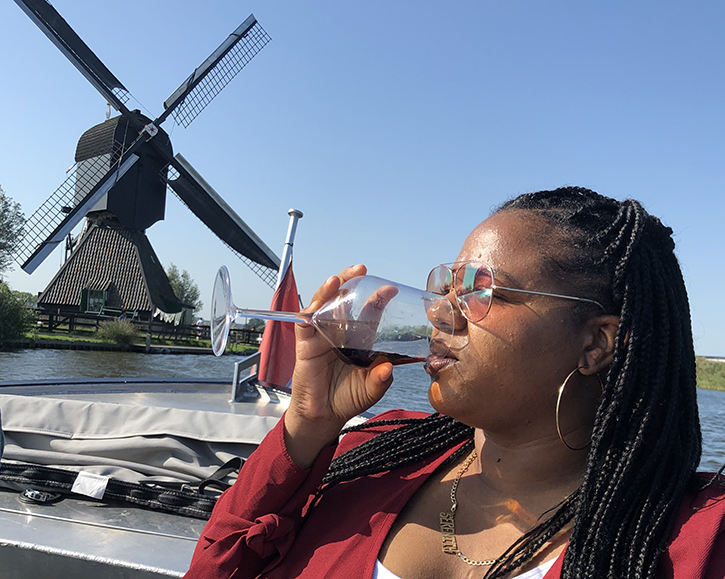
“Here, specialists like dermatologists and gynecologists are not easily accessible. In the Netherlands, every individual has a GP, similar to a primary care physician. The GP is your first contact for all medical questions and concerns. Receiving medical attention in the Netherlands can be a long process, and visiting the emergency room can leave you with a large bill if you don’t first make an appointment with your GP.”
However, the biggest challenge Serenity has faced in her new home is navigating a society that is predominantly (81% to be exact) white European. As a Black woman, she stands out in both the professional and dating world, and often deals with staring, microaggressions, lack of empathy, and feeling isolated in her upper-class neighborhood.
“People of color in the Netherlands are seen as lesser than their white counterparts. I am looked down on until one hears my American accent. I am facing the challenges of starting over in creating meaningful friendships and being away from my family and community back home in NYC. I’ve been thankful to find a tribe of expats to lean on and hold space for one another.”

Luckily, the positives outweigh the negatives, and Serenity remains happy and confident in her decision to make the move. She is now living her dream and is excited for what her future in international education holds. In addition to her career as a Learning Specialist, Serenity also works as an Expat Coach helping others move abroad as educators. She says there are many opportunities available for BIPOC educators to take advantage of.
“Black educators can truly create generational wealth through international teaching. There is a world out here ready to give us a different taste of luxury, freedom, financial wholeness, and wellness. Many schools pay for family and dependent relocation, provide a tax-free salary, free accommodation, free tuition for dependents, and free housing for family and spouse. There are so many perks to being a certified educator, and many countries also have easy and affordable accessibility to nearby countries.”
“Schools will support financially and pay well for families to thrive abroad safely and well-equipped. Imagine if you have a spouse and two children. As a mother, your children’s housing, private school tuition, flights, moving expenses, health insurance, and more are covered by the school. You are in a position financially to pay debt, travel, save, and invest. International educators are afforded the luxury and privilege to create generational wealth and new cycles to be passed down and set up for families and children.”
Serenity will be hosting a live masterclass on October 2 titled “How To Move Abroad As An Educator.” For more information, follow her at @seekingserenityabroad_.
Related: Black Expat: After Living In Five Countries, I Chose Malaysia For Its Blend Of Cultures





